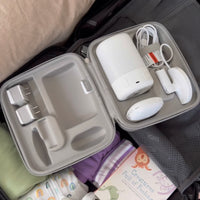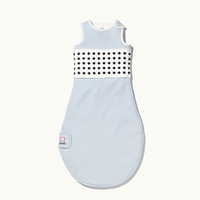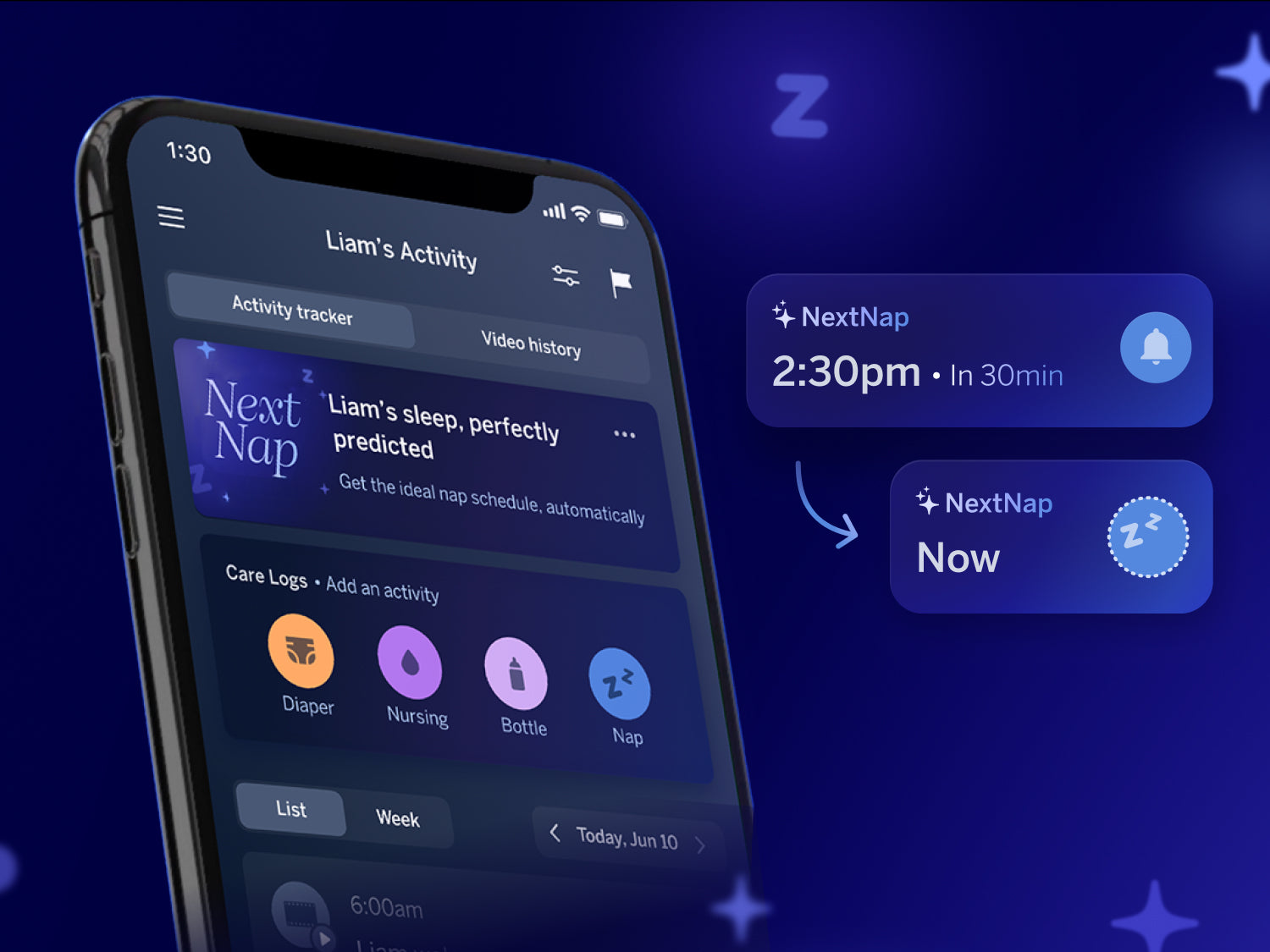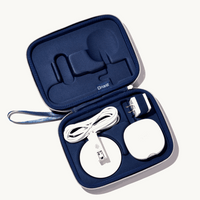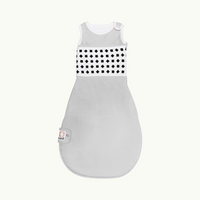You did it—you've officially entered your second trimester! If your first 14 weeks were rough, this is often when things start to feel a bit easier. Many find this "golden period" brings renewed energy, excitement, and a growing sense of connection to their developing baby.
At 14 weeks, you're entering a time when pregnancy often feels more real and manageable. The risk of miscarriage has significantly decreased, morning sickness may be subsiding, and you might even start to show. This is often when many people feel comfortable sharing their pregnancy news with the world.
Understanding what to expect at each stage of pregnancy can help you feel more prepared and confident as your journey to parenthood continues.
Checking in with Baby at 14 Weeks
At 14 weeks, your baby is about the size of a lemon, around 3.4 inches and weighing just over 1 ounce. While still tiny, they're busy growing and getting more active every day!
Physical Development
Your baby's body is becoming more proportioned: Arms and legs are growing longer and more defined, and tiny fingers and toes are fully formed with unique fingerprints already developing. The neck is elongating, allowing the head to sit more upright, and facial features are becoming more refined and human-like.
One of the most exciting developments is that your baby can now make facial expressions! They're practicing smiling, frowning, and even squinting. Their eyes are moving closer together on their face, and their ears are moving to their proper position on the sides of their head.
Internal Development
Inside your baby's tiny body, there's a lot going on. The liver is beginning to produce bile, and the spleen is helping to produce red blood cells. The thyroid gland is maturing and will soon start producing hormones essential for metabolism and growth.
Your baby's kidneys are now producing urine, which becomes part of the amniotic fluid. This is completely normal and healthy—in fact, your baby is already practicing the cycle of swallowing amniotic fluid and urinating, which helps develop their digestive and urinary systems.
|
Development Milestone |
What's Happening |
|
Size |
3.4 inches long, 1.5 ounces (size of a lemon) |
|
Movement |
Active movement, though you may not feel it yet |
|
Facial Features |
Can make expressions, eyes moving closer together |
|
Limbs |
Arms and legs lengthening, joints functioning |
|
Organs |
Liver producing bile, kidneys producing urine |
Checking in with You at 14 Weeks
The second trimester often feels like a breath of fresh air after a tough first few months. You should also notice some exciting new developments:
Physical Changes
Your uterus is continuing to grow and may now be visible as a small bump, especially if this isn't your first pregnancy. You might notice that your clothes are fitting differently around your waist and that you're starting to look pregnant rather than just feeling bloated.
Your breasts may continue to grow and change, and you might notice that your areolas are becoming larger and darker. This is normal, it's your body's way of preparing for breastfeeding.
Energy and Mood Changes
One of the most welcomed changes at 14 weeks is often a return of energy. The extreme fatigue that may have characterized your first trimester is likely improving, and you hopefully feel a bit more like your pre-pregnancy self.
Your mood may also be stabilizing as your hormones begin to level out. While emotional ups and downs are still normal throughout pregnancy, many find the second trimester brings a greater sense of emotional balance and well-being.
Common Second Trimester Symptoms
While every pregnancy is unique, there are several common symptoms you might experience starting at 14 weeks. Understanding what's normal can help you feel more confident and know when to reach out to your doctor.
Improving Symptoms
-
Reduced nausea and morning sickness
-
Increased energy and less fatigue
-
Less intense emotional fluctuations
-
Decreased breast tenderness
New or Continuing Symptoms
-
Sharp pains in your lower abdomen as ligaments stretch
-
Increased appetite
-
Congestion or nosebleeds due to pregnancy hormones
-
The appearance of the linea nigra or darkening of other areas of skin
-
Increased vaginal discharge
Managing Round Ligament Pain
Round ligament pain is common as your uterus grows. To minimize discomfort, avoid sudden movements, try gentle stretching, wear a maternity support belt, and change positions slowly. If pain is severe or persistent, contact your healthcare provider.
What to Expect at Your 14-Week Appointment
Your prenatal appointment around 14 weeks will likely include routine checks like measuring your weight and blood pressure, listening to your baby's heartbeat with a Doppler, and measuring your fundal height (the distance from your pubic bone to the top of your uterus).
This is also an excellent time to discuss any concerns or questions you have about your pregnancy. Your healthcare provider can offer guidance on nutrition, exercise, travel, and any symptoms you're experiencing.
Upcoming Tests and Screenings
Depending on your age, medical history, and preferences, your healthcare provider may discuss second trimester screening options. These might include the quad screen or integrated screening, which test for chromosomal abnormalities and neural tube defects.
You're also approaching the time for one of pregnancy's most exciting milestones: the anatomy ultrasound, typically performed between 18-22 weeks. This detailed scan will check your baby's development and, if you choose, could reveal your baby's sex.
Nutrition and Lifestyle Recommendations
With your appetite likely returning and energy levels improving, 14 weeks is an excellent time to focus on your nutrition and establishing healthy habits that will benefit both you and your baby throughout pregnancy.
Nutritional Focus
Continue taking your prenatal vitamins and focus on eating a balanced diet rich in fruits, vegetables, whole grains, lean proteins, and healthy fats. If bigger meals start to feel difficult to consume, smaller meals and snacks throughout the day are a great option. Key nutrients include:
-
Folate/Folic Acid: 400-800 mcg daily for neural tube development
-
Iron: Support increased blood volume with iron-rich foods and supplements
-
Calcium: Essential for your baby's bone development (1,000 mg daily)
-
Protein: Support your baby's growth with 70-80 grams daily
-
Omega-3 fatty acids: Important for brain and eye development
Skip These Foods
Continue avoiding raw or undercooked meats, fish high in mercury, unpasteurized dairy products, raw eggs, and alcohol. Limit caffeine to less than 200mg per day (about one cup of coffee).
Exercise and Activity
With increased energy, this is often a great time to establish or maintain an exercise routine. Most pregnant people can safely continue or begin moderate exercise during pregnancy, including walking, swimming, prenatal yoga, and other low-impact activities.
Always consult with your healthcare provider before starting any new exercise program, and listen to your body. Avoid activities with high risk of falling or contact sports, and stay hydrated during physical activity.
Supporting Your Emotional and Mental Health
The second trimester often brings emotional relief along with physical improvements. However, it's completely normal to experience a range of emotions as you process the reality of becoming a parent and adjust to your pregnancy.
Continue prioritizing your mental health by maintaining connections with supportive friends and family, engaging in activities you enjoy, and communicating openly with the people in your support system about your feelings and concerns.
You can also check out our guide for mental health during pregnancy and postpartum for additional resources and strategies. If you're experiencing persistent anxiety, depression, or difficulty coping, don't hesitate to reach out to your healthcare provider.
Preparing for Upcoming Milestones
As you settle into your second trimester, it's natural to start thinking ahead to upcoming pregnancy milestones and what you can do to prepare for them.
The Anatomy Scan
Between 18-22 weeks, you'll have your detailed anatomy ultrasound. This comprehensive scan checks your baby's growth and development, examines organs and structures, and can detect certain birth defects. Start thinking about whether you want to learn your baby's sex, and consider having your partner or support person join you for this exciting appointment.
Feeling Baby's Movement
Although you likely can't feel your baby's movements yet, this exciting milestone is approaching! First-time parents typically feel movement between 18-22 weeks, but if you've been pregnant before, you might feel them as early as 16 weeks.
Second Trimester Screenings
If you choose to have second trimester genetic screening, these tests are typically performed between 15-20 weeks. Discuss the options with your healthcare provider to understand what's recommended for your situation.
Understanding When to Call Your Doctor
While 14 weeks is generally a time of decreased pregnancy complications, it's important to know what symptoms warrant immediate medical attention and what concerns are normal to discuss at your next appointment.
When to Call Your Healthcare Provider Immediately
-
Heavy bleeding or cramping
-
Severe abdominal pain
-
Severe headaches or vision changes
-
Persistent vomiting that prevents keeping food or fluids down
-
Signs of infection (fever, chills, burning with urination)
-
Any symptoms that feel significantly different from your normal pregnancy experience,
-
Symptoms of depression including:
-
Persistent sadness or anxiety
-
Loss of interest in hobbies or activities you used to enjoy
-
Trouble sleeping or sleeping too much
-
Feeling disconnected from your partner or family
-
Intense irritability or anger
-
Feeling hopeless, worthless, or guilty
Normal Concerns to Discuss at Your Next Appointment
-
Questions about exercise or travel
-
Mild aches and pains
-
Changes in discharge or skin
-
Concerns about weight gain or nutrition
-
Questions about upcoming tests or procedures
-
Questions about sleep and mental health
Planning for Your Baby's Arrival
While it might seem early, 14 weeks is actually a wonderful time to start thinking about some of the practical aspects of preparing for your baby's arrival. With your energy returning and several months still ahead, you can take a relaxed approach to nesting.
What's Your Birth Plan?
Start thinking about your birth preferences and the type of delivery experience you hope to have. While plans may change, having early conversations with your partner and doctor can help guide decisions throughout your pregnancy.
Consider your postpartum support system and start thinking about how you'll want help during your recovery period. This might include discussing plans with family members, researching postpartum doulas, or thinking about meal prep.
Creating Your Baby's Environment
You don't need a fully furnished and decorated nursery yet, but it's a great time to start thinking about creating a safe, comfortable environment for your baby. Consider the essentials you'll need and start researching products that will support your baby's development and your peace of mind as a new parent.
Peace of Mind, Delivered in HD
As you prepare for your baby's arrival, consider the Nanit Pro Smart Baby Monitor for tracking your baby's sleep patterns, breathing, and development—giving you peace of mind during those precious early months.
Building Your Baby Registry
Many pregnant people start thinking about their baby registry. If you need some inspo, our comprehensive nursery checklist for newborns can help you understand the essentials you'll need and make informed decisions about products that'll actually be useful.
Focus on quality over quantity, and remember that many items can also be purchased closer to your due date. Prioritize safety essentials, feeding supplies, and items that will help you monitor and care for your baby during those important early months.
Sweet Dreams for the Whole Family
Start thinking about your baby's sleep environment with the Nanit Sound + Light Machine. This smart device helps establish healthy sleep habits from birth with soothing sounds and gentle lighting that can be controlled through your smartphone.
The Takeaway
Hitting 14 weeks is a big deal! It means you've reached what many consider the most best phase of pregnancy. With the challenges of the first trimester hopefully behind you and the excitement of upcoming milestones ahead, this is a time to celebrate how far you've come.
Still, don't forget that every pregnancy is unique, and your experience might be different from what other people in your life might describe (or what you read on the internet.) Trust your body, keep taking care of yourself, and don't hesitate to reach out to your doctor when you have questions or concerns.














